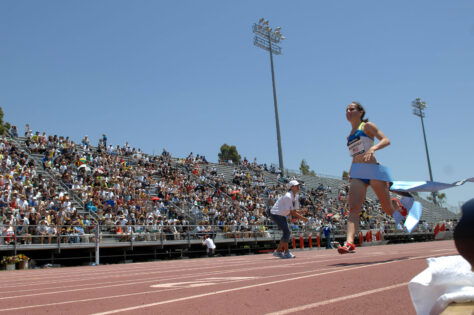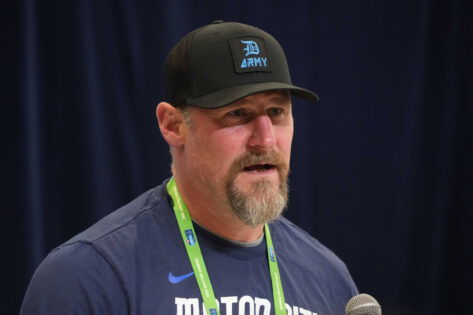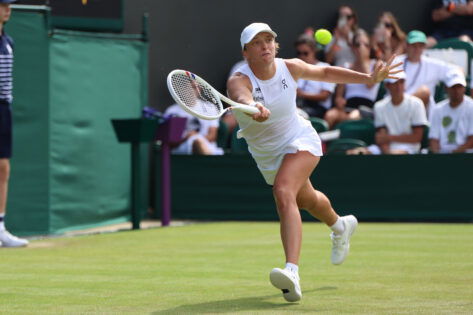Back in 2012, the London Olympics were a stage of dreams and drama, none more so than in the women’s 1500m final. A determined American middle-distance runner, crossed the finish line in sixth place, a position that felt like a bitter pill after years of grueling training. Little did she know, the real race was just beginning.
The shadow of doping loomed large, with Russian athlete Tatyana Tomashova initially celebrated as the silver medalist. But the integrity of the sport was soon questioned as allegations of anti-doping violations surfaced, casting a long, dark cloud over Shannon Rowbury’s Olympic moment. How long would justice take to prevail?
Fast forward thirteen years, and the wait is finally over. The International Olympic Committee (IOC) has delivered its verdict, a decision that brings long-awaited justice not just for Rowbury but also for Ethiopian runner Abeba Aregawi. The announcement, captured in a video shared by Chris Chavez on X, marks a pivotal moment. IOC President Kirsty Coventry stated, “We took a decision on medal reallocation. There was a medal reallocation from the London 2012 1500m event in athletics due to an antidoping rule violation.”, IOC admitting to the doping allegation.
“We took a decision on medal reallocation. There was a medal reallocation from the London 2012 1500m event in athletics due to an antidoping rule violation: The new silver medalist is Abeba Aregawi…and the new bronze medalist is Shannon Rowbury.” pic.twitter.com/dPpgX2o3N2
— Chris Chavez (@ChrisChavez) June 26, 2025
“The new silver medalist is Abeba Aregawi from Ethiopia…and the new bronze medalist is Shannon Rowbury from the United States. The following ranking was also amended.” This reallocation rectifies a wrong that has lingered for over a decade, restoring faith in the system. But what does this mean for the future of Olympic integrity?
Rowbury’s journey reveals the emotional toll of this wait. She spoke of the frustration and the slow grind of hope, saying, “It was an overwhelming feeling of emotion. I had put London in a box in the corner of my heart, had shielded it up, stored it away. In the weeks since, it’s been trying to unpack a lot of those feelings and the gratitude that 12 years later, there’s actually justice coming.” Her words resonate with every fan who believes in the purity of competition. The IOC’s decision not only honors her perseverance but also underscores the ongoing battle against doping in sports. As we celebrate this resolution, one must wonder: will this be a turning point for how quickly justice is served in future cases?
Shannon Rowbury calls for an overhaul of the Doping Resolution Process
The saga of Shannon Rowbury’s Olympic journey is one of patience, perseverance, and a quest for fairness that spanned over a decade. After finally being awarded the bronze medal from the 2012 London Olympics due to a doping scandal involving Russian athlete Tatyana Tomashova, Rowbury’s relief is palpable, but so is her frustration with the system. In a candid discussion on the Citius Mag podcast, she didn’t just reflect on her personal victory; she called for a systemic change. “We need to have a better system in place,” she asserted, her voice carrying the weight of experience. Her words echo the sentiments of every fan who believes in a level playing field. But how can the process be improved?
Rowbury’s plea is rooted in the emotional and procedural turmoil she endured. For thirteen long years, she navigated a labyrinth of uncertainty, often in the dark about the timeline of her case. “God willing there’s less of these moving forward, but for those who do have to go through such a process, there needs to be a better protocol for informing the athlete before it goes to the media – to give them a sense of timeline, even if there’s not exact dates,” she explained. This lack of communication, she argues, exacerbates the trauma of waiting. Her desire to “more broadly help create a better process” is not just for herself but for others like Alysia Montaño, who faced similar ordeals. It’s a call to action that resonates with the core values of sportsmanship. So, what steps can be taken to ensure athletes are not left in the dark?
The resolution of Rowbury’s case, marked by the IOC’s recent decision to reallocate medals, is a step forward, but it’s also a stark reminder of the flaws in the current system. Her advocacy for transparency and support during such processes is a beacon for change. As fans, we cheer for the athletes on the track, but we must also champion their fight off it. Will the sports world listen and act?
The post 13-Year Wait Ends as U.S. Olympic Star Gets Justice After Massive Doping Scandal Shake-Up appeared first on EssentiallySports.



